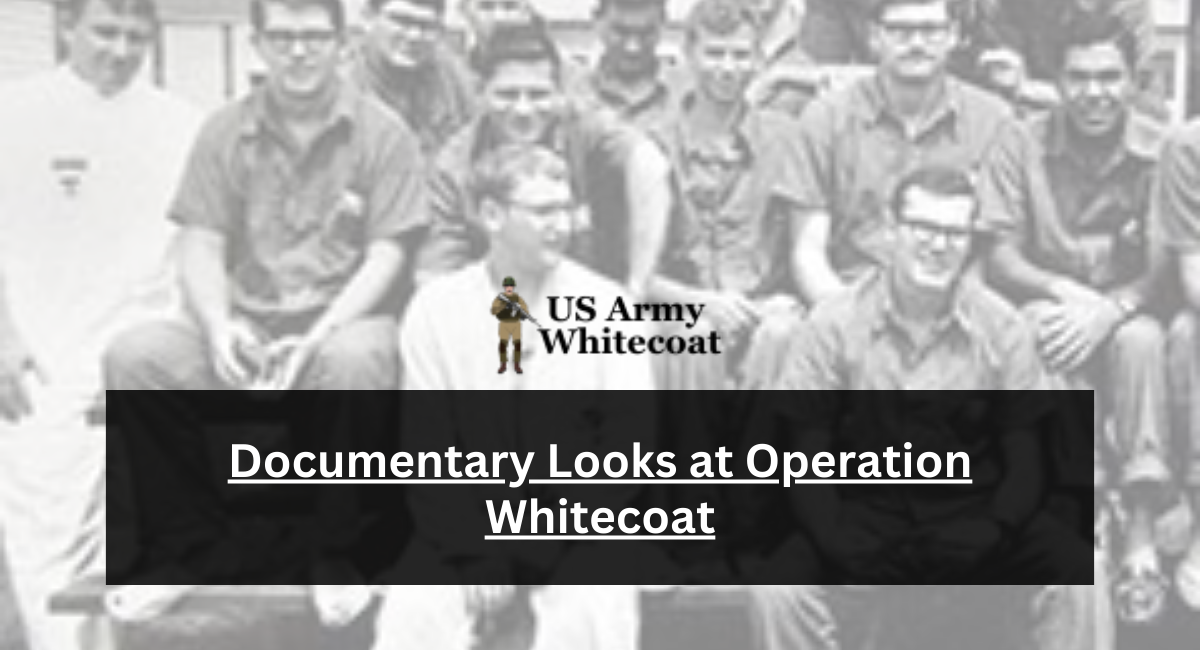In the annals of Cold War history, Operation Whitecoat stands as a distinctive and often overlooked chapter, representing the intersection of military initiatives, scientific research, and conscientious objection.
A documentary dedicated to examining Operation Whitecoat provides a lens through which audiences can delve into the motivations, experiences, and lasting impact of the conscientious objectors who volunteered for this unique biomedical research program. As we embark on a comprehensive exploration of this documentary, we unveil the untold stories, ethical considerations, and historical significance encapsulated in Operation Whitecoat.
Documentary Overview:
The documentary on Operation Whitecoat serves as a crucial medium for bringing this historical episode to light. Through interviews, archival footage, and expert commentary, it offers a nuanced understanding of the motivations behind the volunteers, the scientific advancements achieved, and the broader implications of this collaboration between the military and conscientious objectors.
Motivations of Conscientious Objectors:
One of the focal points of the documentary is the exploration of why individuals, particularly members of the Seventh-day Adventist Church, chose to volunteer for Operation Whitecoat.
Interviews with surviving participants and family members shed light on the complex interplay of religious beliefs, a commitment to nonviolence, and a sense of duty to contribute to scientific knowledge.
Scientific Contributions and Discoveries:
The documentary delves into the scientific aspects of Operation Whitecoat, highlighting the experiments conducted on volunteers to study the effects of various biological agents.
By providing a detailed account of the research methodologies and outcomes, the documentary showcases how these experiments contributed to advancements in medical knowledge, infectious disease research, and vaccine development.
Ethical Dilemmas and Informed Consent:
Ethical considerations are central to Operation Whitecoat, and the documentary doesn’t shy away from addressing the complexities. It explores the concept of informed consent, examining how volunteers were briefed on potential risks and uncertainties.
This aspect adds a layer of introspection, prompting viewers to contemplate the ethical dimensions of conducting research in the context of military objectives.
Personal Narratives:
One of the documentary’s strengths lies in its ability to humanize the volunteers of Operation Whitecoat. By incorporating personal narratives, it goes beyond the scientific and military aspects, revealing the individual stories, struggles, and triumphs of those who participated.
This human touch adds depth to the historical account and fosters a connection between the audience and the subjects.
Archival Footage and Interviews:
A treasure trove of archival footage enhances the documentary’s authenticity, providing a visual journey through the Operation Whitecoat era.
Interviews with surviving volunteers, military personnel, and historians bring diverse perspectives, offering a well-rounded portrayal of the multifaceted nature of this collaboration.
Impact on Conscientious Objection Policies:
Operation Whitecoat had a lasting impact on conscientious objection policies within the U.S. military, and the documentary delves into this transformative aspect.
By featuring expert analyses and historical context, viewers gain insights into how the willingness of conscientious objectors to engage in non-combatant roles influenced military policies and broadened the understanding of alternative service.
Legacy and Commemoration:
Beyond the historical events, the documentary explores how Operation Whitecoat is remembered and commemorated. Through interviews with individuals involved in subsequent efforts to preserve and honor this chapter, the film sheds light on the ongoing legacy and the importance of ensuring that the sacrifices and contributions of Operation Whitecoat volunteers are not forgotten.
Contemporary Relevance:
The documentary doesn’t confine itself to the past; it draws connections to contemporary discussions on ethics in scientific research, military-medical collaborations, and conscientious objection.
By examining the historical context through a modern lens, it prompts reflection on the lessons learned from Operation Whitecoat and their relevance in today’s world.
Audience Reflection and Engagement:
A thought-provoking documentary encourages audience reflection. It prompts viewers to consider the motivations, challenges, and ethical implications presented in Operation Whitecoat.
Through engaging storytelling and well-researched content, the documentary invites audiences to become active participants in the historical narrative.
Conclusion:
In conclusion, the documentary on Operation Whitecoat serves as an invaluable window into a remarkable chapter in history, blending military objectives with scientific pursuits and the conscientious objections of volunteers.
Through a meticulous exploration of motivations, scientific contributions, ethical dilemmas, and personal narratives, the documentary brings this complex story to life.
As we watch, reflect, and engage with Operation Whitecoat through this lens, we not only gain a deeper understanding of the past but also appreciate the enduring impact of those who participated in this extraordinary biomedical research program.
